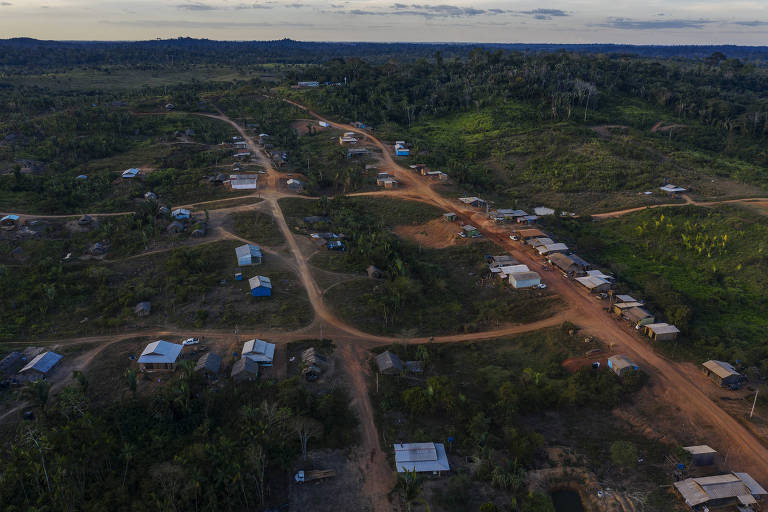In the Amazon, makeshift cities populate the mouth of the forest, close to mining or deforestation. Established in 2016, Vila Renascer continues to grow. Every day, houses, evangelical churches, bars, restaurants, auto repair shops, gas stations, markets, electricity poles, and even small hotels appear. By law, however, none of this should exist: the village exists in the Apyterewa Indigenous Land (TI) of the Parakanã people, approved in 2007.
The presence of non-indigenous people in Apyterewa began in the early 1980s. Their withdrawal was one of the environmental license conditions for constructing the Belo Monte hydroelectric plant on the Xingu River, which crosses the region. Instead, their numbers increased. In the Michel Temer government (MDB), the Ministry of Justice ignored the STF's determination and paralyzed the removal of squatters and invaders of bad faith, that is, who entered the area aware that it was an indigenous land.
After the government's retreat, there were new invasions and the opening of new mining sites. This movement exploded in late 2018 and early 2019, with the promise of Jair Bolsonaro to revise land demarcations. Deforestation spread to the Bacajá Trench, of the Xikrin people, while the illegal market for lots within indigenous lands gained strength.
The result is that, in 2019, Apyterewa lost 8,420 hectares of forest, the highest rate of deforestation since its approval, 13 years ago. Bacajá Trench had 5,600 hectares deforested, also the biggest loss of vegetation cover since the approval, in 1996. The numbers are from the Prodes system, from Inpe (National Institute of Special Research), which measures from August to July of the following year.
Translated by Kiratiana Freelon
